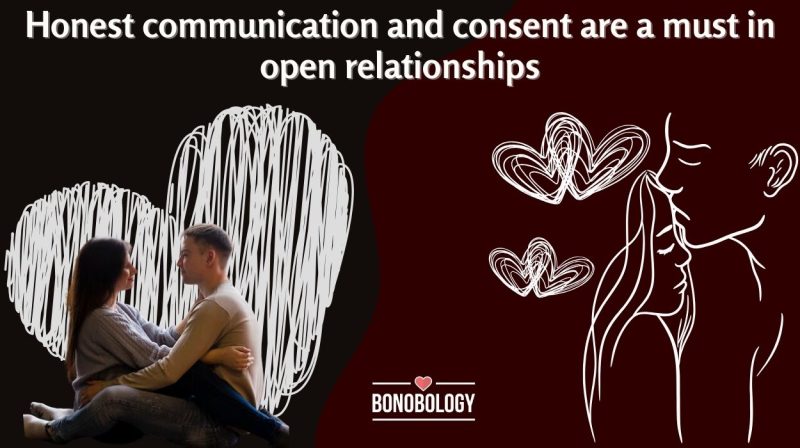“When are you going to get married?” is one of the most common questions you get asked if you are a young adult in a relationship. However, in today’s world, this question is perhaps not as relevant as before. With the rising popularity of live-in relationships, more and more couples are deciding to stay together as partners without getting married. Thanks to Bollywood, cohabitation before marriage has seen a rise in popularity. Though still frowned upon by many, the advantages of a live-in relationship are many. So the idea finds acceptance with many young couples.
What are the advantages of a live-in relationship?
Table of Contents
Well, being in a live-in relationship essentially means what is implied – living together without tying the knot or getting married. For many reasons such as testing compatibility or sharing expenses, couples prefer to live together as husband and wife without getting married. They share a home and financial liabilities, have a sexual relationship, but without the legal obligations of marriage.
The concept of live-in relationships is already quite popular and widely accepted in Western societies. Thanks to globalisation and greater exposure to Western society, the practice is spreading its wings amongst the youth in more conservative societies as well.
Of course, the rise in popularity isn’t without a reason. Is a live-in relationship good or bad? Live-in relationships offer many advantages over marriage. Let’s take a quick look at some of these.
7 Advantages of a live-in relationship

1. Testing the waters
One of the primary advantages of a live-in relationship is that it offers a chance to test your compatibility with your partner.
Most of us look great and behave well when on a date, but when we live with someone, we get to see the real personality of that person.
That helps in making an informed decision, as people can be very different when they live together than when they make themselves available for a few hours. If there is a lack of compatibility, it’s better to find that out before getting married than after.
2. Financially viable

A live-in relationship offers more independence, both legal as well as financial, than marriage. In marriage, most financial decisions are a joint exercise, since both the partners have to live with that decision. In a live-in arrangement, one can decide how much one would spend, and the finances are mostly shared jointly. Plus, if a couple is keen on getting married later, they could save a lot of money by living together and plan something else with this money. This is one of the major advantages of a live-in relationship.
Add to that the fact that you can have each other’s company when you want it – saves so much on those café and dinner bills! Also, ending the relationship does not involve any legal procedures like divorce if you are living-in with your partner
3. Equal responsibilities

Since marriage is a custom set by age-old practices of the society, the responsibilities of marriage are often fixed by convention and not capability. So there will always be a debate between a live-in relationship vs marriage. Getting bogged down by such impractical responsibilities is very likely after getting married. Live-in relationships don’t have any such drawbacks. Since the relationship is devoid of social customs, responsibilities are based on needs rather than convention and are divided equally between the partners. The freedom that live-in arrangements bring to a couple is very rarely offered by marriages.

4. Respect
Due to their nature, live-in relationships are more volatile than marriage. However, this lends a curious advantage to the relationship. Since both the partners know that either one of them can end the relationship without much hassle, they put in more effort to keep it going. Moreover, the lack of dependence on each other in terms of finance and social obligations makes each partner work hard at the relationship. Respect for each other and mutual trust is generally more in such relationships. Whether it is the insecurity that one may walkout or the freedom, both partners in a live-in relationship tend to take extra effort in making the other one feel special and loved. Now, where does this happen in a marriage? These are the advantages of a live-in relationship.
5. Free from the societal diktat

Live-in relationships are free from unnecessary societal norms and diktats. Couples can go about their lives as they want to, without thinking about unnecessary rules and conventions. One can maintain personal space, and there is no need to make compromises that being married often encompasses. There is no pressure of pleasing anyone’s parents or placing someone before you, and being free from a social and legal bond lends a sort of independence and freedom to walk out anytime one feels things are not moving the way they should
6. Freedom to walk out without the stamp of a divorcee
So things don’t work out and you feel like walking out. This is fairly easy when you are in a live-in arrangement, as you are not bound by any legal or social obligation to stay together even when you are unhappy. And in a country like India where divorce is still a huge taboo, and divorcees are looked down upon, live-in arrangements can make it a tad easier to walk out if things are not as rosy as you’d want them to be
7. Bonding on a deeper level

Some people who have been in live-in relationships feel that they have deeper bonding than those who jump into marriage as soon as the sparks fly. Because the burdens of commitments and responsibilities are not there, partners tend to appreciate each other for what they are and respect the struggles each one makes to make the relationship work. In a marriage, all efforts are taken for ‘granted’ – that’s what you are supposed to do!

Though live-in relationships do have some appealing and practical benefits over marriage, they are still a taboo in our country. And as with everything else, live-in relationships also have some disadvantages, which are listed in our article here. Live-in relationships are not illegal in India although it often does not bestow certain rights that come with marriage. But time and again the Indian Judiciary has come up with landmark judgments that ratify the fact that India is open to the concept of live-in relationships.
Does Living Together Before Marriage Mean You Are Ready For The Wedding?
Your contribution does not constitute a charitable donation. It will allow Bonobology to continue bringing you new and up-to-date information in our pursuit of helping anyone in the world to learn how to do anything.






















Featured
My Wife Wants Open Marriage: 17 Tips To Navigate
Open Relationship Dating: What It Is & Why It Works
13 Glaring Red Flags Before Moving In Together You Should Never Ignore
Polyamory Vs Open Relationship – 8 Key Differences (And Some Similarities)
Polyamorous Vs Polygamy – Meaning, Differences, And Tips
How To Make A Polyamorous Marriage Work? 6 Expert Tips
Are You Moving In Together? Checklist From An Expert
21 Expert Tips For Couples Moving In Together
Non-Monogamous Relationship: Meaning, Types, Benefits
Decorating Tips For Couples Moving In Together
How Soon Is Too Soon To Move In Together?
Cohabitation – Everything You Need To Know About It
Does A Friends With Benefits Relationship Actually Work?
Tips To Ease Moving In With Your Boyfriend
10 Open Relationship Rules That Have To Be Followed To Make It Work
Does Living Together Before Marriage Mean You Are Ready For The Wedding?
Marriage VS Live-In Relationship: Everything You Wanted To Know
What Are The Disadvantages Of Live-In Relationships?
5 Things To Consider Before Beginning A Polyamorous Relationship
7 Creative Ways To Ask Your Girlfriend To Move In With You